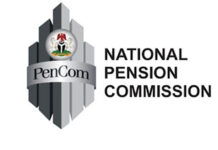Expert seeks introduction of tax breaks, energy fund to curb rising cost of energy
CHIGOZIE AMADI
Dr Mohammed Salihu, the Director, Institute for Development Research, Ahmadu Bello University (ABU), Zaria, has called for introduction of tax breaks and Energy Price Fund to cushion the effects of rising cost of energy in the country.
Salihu made the call on Monday at a seminar on the “Rising Energy Costs: Issues and Way Forward,” organised by National Institute for Legislative and Democratic Studies (NILDS) in Abuja.
According to him, the rising cost of energy in Nigeria presents a multi-faceted challenge with significant socio-economic, environmental and political implications.
He said that effective solutions must align short-term relief with long-term reforms, while emphasising affordability, sustainability and equity.
The expert said that access to affordable energy was a fundamental right and critical enabler of af economic development.
He said that by adopting a holistic and inclusive approach, Nigeria can navigate its energy crisis and achieve a resilient and sustainable energy future.
“I recommend the establishment of Energy Price Fund to stabilise fuel prices to protect consumers from volatility.
“Tax breaks can also be introduced on appliances to encourage energy-efficient consumption and reduce demand,” he said.
Salihu also advocated for modernisation of refineries to reduce import dependency and boost local production as well as investment in renewable projects to decentralise and ensure affordable power solutions.
Earlier, the Director-General of NILDS, Prof. Abubakar Sulaiman, said that in spite of the good intentions of the reforms in the country, Nigerians were still paying higher prices for electricity, transportation, premium motor spirit, aviation fuel, diesel and cooking gas.
Sulaiman said that the national electricity production, relative to the population, remained low compared to other African countries like South Africa, Egypt and Algeria.
According to him, years of huge public investment and change of management arrangement for the electricity industry have also not translated into the desired outcomes.
He said although the transport sector had continued to record diversification gains, nevertheless, the cost of fueling remained high.
According to the director-general, just as Nigerians have begun to celebrate the entry of CNG into the nation’s energy mix, safety concerns have been raised from many quarters amidst the relative high cost of conversion.
“The price of cooking gas has also increased, thus creating new demand for fuelwood, with consequences for climate change and environmental commitments.
“Despite these challenges, the increases in prices are coming at a time when the president’s bold reforms in the energy sector, which include the removal of subsidies for customers on Band A feeders of electricity consumption and the removal of fuel subsidies, are expected to translate into greater gains for the country.
“The task before us today, therefore, is to examine all sides to these issues and to propose sustainable solutions that can be considered by government at all levels and across the three arms as well as the private sector.
“This is particularly essential, as energy is the backbone of economic growth and national development, hence the need to ensure its availability and affordability.
“To achieve this objective, experts from across fields have been invited to weigh in on solutions that can help deliver the promises of the present administration towards ending energy poverty,” he said.
























